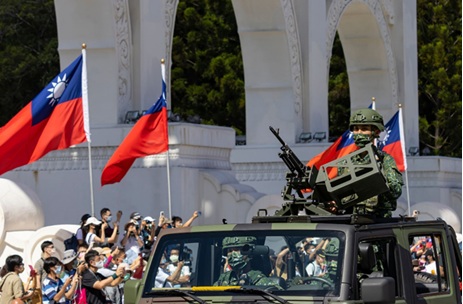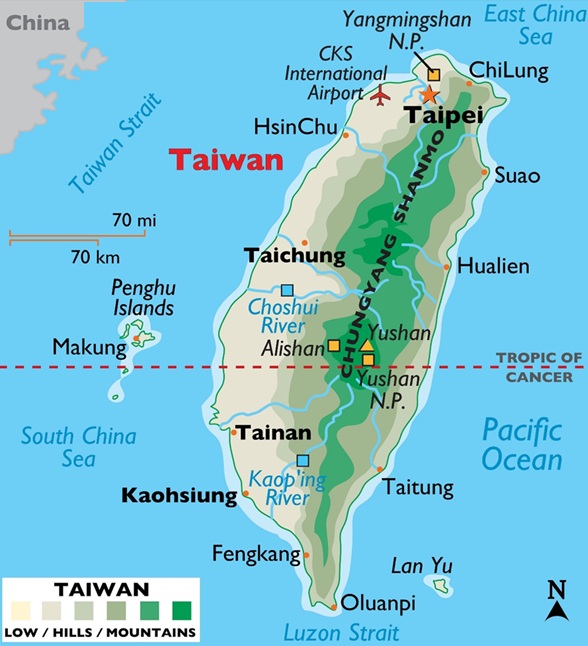| (Prelims: Current Affairs) |
Why in the News
Recently, the US approved the sale of military equipment and components worth $330 million to Taiwan.

US-Taiwan Defense Cooperation: Key Points
- The approval of the recent defense deal is the first military deal since Donald Trump's return to the White House.
- Taiwan has sought non-standard components, spare parts, and repair support for F-16, C-130, and Indigenous Defense Fighter (IDF) aircraft.
- The US is Taiwan's largest arms supplier and is considered a key security pillar against potential Chinese aggression.
- Taiwan's President Lai Ching-te is seeking to increase the defense budget to 5% of GDP by 2030 and increase investment in the US.
Significance and Implications
- This military package from the US will strengthen Taiwan's air defense capabilities.
- Given China's increasing military activities, this deal enhances Taiwan's deterrence capabilities.
- Amid China-Taiwan tensions, this US move has wide-ranging implications for the Indo-Pacific security architecture, the strategic interests of the Quad countries, and the regional balance of power.
- China considers this deal a violation of its sovereignty. Consequently, this move could further escalate tensions between Beijing and Washington.
- Japan's recent statement on the possibility of sending troops to defend Taiwan under "collective self-defense" has further angered China.
- In such an environment, US arms sales further intensify strategic competition in the Indo-Pacific.

|
Did you know?
India does not maintain formal diplomatic relations with Taiwan. India adheres to the "One China Policy," meaning India recognizes China as a sovereign state. Therefore, India does not have an embassy in Taiwan and does not officially call Taiwan a "country."
|



